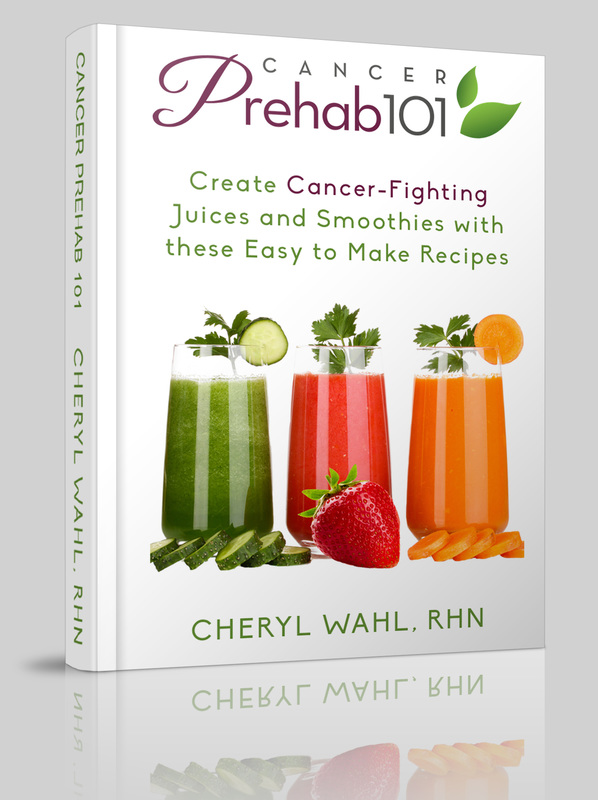|
The key to successful weight control is learning to listen to your body’s cues. You want to eat when you feel hungry, but not famished. Feeling overly hungry can trigger overeating. The following tips can help you get in touch with the signs of hunger and satiety to prevent overeating:
1. Stick to a schedule - Plan to eat every three to four hours, stopping after dinner. 2. Include lean protein - Protein-rich foods such as lean meat, fish, poultry, egg whites, tofu and legumes help you feel full longer because they require more time to digest and absorb than other nutrients. Divide your protein intake among three meals and two snacks. Protein-rich snack choices include nuts, soy nuts, edamame, hard-boiled eggs, part-skim cheese, yogurt and/or a protein bar. 3. Don’t skip protein at breakfast - Research suggests that eating lean protein in the morning keeps you satisfied longer than if eaten at other times of the day. 4. Choose low-glycemic foods - Avoid refined (white) and sugary foods. These are high-glycemic foods that cause blood glucose and insulin levels to spike after eating. In response to excess insulin, blood glucose levels drop more quickly over the next few hours, which can trigger hunger and overeating. Low-glycemic foods are more slowly digested and help keep hunger at bay. They include beans, lentils, nuts, pasta, brown rice, sweet potatoes, steel-cut or large-flake oatmeal, oat bran, Red River cereal, 100% bran cereals, yogurt, milk, unflavored soy milk, apples, oranges, peaches, pears and berries. 5. Add grapefruit - People who eat grapefruit have significantly lower levels of insulin after eating which was thought to control hunger. 6. Spice up meals - Capsaicin, the component that gives red chili peppers their heat, can reduce hunger and increase calorie burning. Adding cayenne pepper to meals was effective at reducing appetite for fatty, salty and sweet foods, especially among people who did not consume it regularly. 7. Chew sugarless gum - A recent study found that chewing gum for one hour in the morning helped participants eat fewer calories at lunch. Chewing stimulates nerves in the jaw connected to the brain region that regulates satiety. 8. Slow down - It takes roughly 20 minutes for appetite-related hormones to kick in and tell your brain you’ve had enough food. After every bite, put down your knife and fork, chew thoroughly and sip water. Do not pick up your utensils until your mouth is empty. 9. Savour your food and ban distractions - Eating in front of the television, while reading, or while driving leads to mindless eating. Reserve the kitchen or dining-room table for meals and pay attention to the delicious flavors and aromas in your meal. 10. Rate your hunger - Determine how hungry – or satisfied – you feel before you eat, halfway through a meal, and after you finish. Stop eating when you feel about 70% full.
0 Comments
The Biology behind Inflammation that leads to Cancer - and Why the Anti-inflammatory Diet can help11/19/2014  Inflammation is a response to heightened tissue damage resulting from physical injury, exposure to environmental toxins, infection (more on this later), or other types of stressors. Inflammation can help suppress development of a cancerous tumor by stimulating an anti-tumor immune response but more often than not it appears to encourage tumor development. An extensive body of population-based research indicates an increased risk of certain cancers in the setting of chronic inflammation. For example, the two inflammatory bowel diseases, ulcerative colitis and Crohn’s disease, predispose people to cancers of the intestinal tract, like colorectal cancer. In the laboratory, research has shown that many of the biological processes involved in inflammation (e.g., leukocyte migration/movement of white blood cells, dilation of local blood vessels with increased permeability and blood flow, angiogenesis/ growth of new blood vessels from pre-existing vessels), when found in association with cancerous tumors, are more likely to contribute to tumor growth, progression, and cancer spread (metastasis) than to bring out an effective anti-tumor response in the tissue being overtaken by cancerous cells. In short, inflammation fans the flames of cancerous cell growth in tissue that is already afflicted with cancer, and spurs the development of tumors in tissues that harbor pre-cancerous cells. At all three stages of tumor development (initiation, progression and metastasis), inflammation is there, spurring on DNA mutations, secretion of pro-inflammatory hormones and a host of other damaging cellular processes. In a sense, chronic inflammation creates a cellular environment that encourages cells that already have a cancerous tendency to go haywire. While chronic inflammation appears to the increase the likelihood of development of several different cancers, the exact mechanisms by which this happens remains to be determined. As a common cause of inflammation, infection is one plausible mechanism. Numerous studies show the presence of microbial infections can conspire with inflammation to promote tumor growth. In addition to over-replicating themselves, new research shows tumors cells also produce many compounds that attract inflamed cells, which then secrete an array of biological signals to further stimulate cancerous cell division. As like attracts like, defective tumor cells draw more defective, inflammatory cells to it, and thus, the cancer growth is imminent. Once the cancer spreads to other parts of the body, inflammation continues to play a role as the perfect environment to support tumor growth at the metastatic sites. An understanding and appreciation of the strong association between chronic inflammation and cancer has led to many clinical drug trials involving anti-inflammatory drugs like Vioxx and aspirin. Unlike pharmaceutical remedies, which often alleviate one symptom only to cause another, nutraceutical remedies from natural foods heal the damage done by inflammation without adverse side effects. It’s also rare to suffer toxicity from consuming too much of one nutraceutical food. In their 2005 book entitled Foods that Fight Cancer, Beliveau and Gingras nicely summed up the advantages of natural food remedies (nutratherapy) versus artificial pharmaceutical remedies. Cancer-fighting compounds found in food have been naturally selected over the course of evolution to target the same biological processes that anti-cancer drugs seek to treat. One major advantage is that the natural compounds in foods are synergistic – meaning they work together – to create a healing environment that soothes, rather than aggravates, inflammation. Synergy is rarely observed with pharmaceutical agents. Cancer is a formidable opponent and once someone has been diagnosed, anti-cancer drugs cannot and should not be avoided. Instead, they should take advantage of the synergistic nature of cancer-fighting compounds available in foods and eat more phytochemicals to deprive cancer cells of the pro-inflammatory environment they crave. Anti-cancer food therapy compliments anti-cancer drug therapy, and once the cancer is conquered, eating an anti-inflammatory diet will help keep it from returning. Everyone is unique, and if you would like specific suggestions relating to the type of cancer you have and the lifestyle you lead, please contact me and we can set up an appointment where I can give you specific recommendations tailored to you. In the meantime, I suggest these basic changes: A few months ago, I had had enough of feeling exhausted all the time. I would cry at the drop of a hat and couldn't make simple decisions. I didn't feel like me, I knew something was wrong. I went to my doctor and she convinced me I was depressed and wrote me a prescription for an anti-depressant. She said to me, "It's normal, do you know how many prescriptions I write for anti-depressants for women over 40?". After I got home, I started thinking more about our conversation, something didn't feel right, this wasn't depression, there was something more here. I just didn't know what it was.
I decided to make an appointment with a Naturopath, and it turns out, that was the best thing I did. Not only did she test my iron levels and thyroid (which, by the way my doctor never did), she tested me for adrenal fatigue, which is a simple saliva test done over 24 hours. When the results came back that I had adrenal dysfunction, I actually cried...it wasn't all in my head! I could be helped, without a prescription. We've all been there. In times of stress, our bodies go on high alert and suddenly the simply things that create balance in our lives – like getting enough sleep or making a simple decision – seem impossible. We “hit a wall” and crash into depression, or worse, because our bodies are spent and completely exhausted. This is called adrenal fatigue and is the result of our primal “fight or flight” stress response never letting down. Our adrenal glands kick all systems into high gear when we're stressed. As their name implies, the adrenal glands secrete adrenaline among other potent hormones. Located just above the kidneys, it is the basic task of the adrenal glands to respond to stress by rushing your whole body into “fight or flight” mode. This means our adrenal gland either signal our body to rage against whatever illness or irritant is causing the stress, or flee to a safe place where the stress can be avoided. For instance, to fight, our adrenal glands signal the heart to work harder, increasing the heart rate and elevating blood pressure. Energy use increases immediately as demands on the body's stores increase under the influence of the adrenal hormones. Then, when the crisis is abated, the adrenal glands restore themselves and replenish energy supplies for the next emergency. If we are constantly over-worked, undernourished and chronically exposed to toxins with no sign of a break, then there's no let-up for the adrenal glands. Eventually, they will bottom out and plummet into adrenal exhaustion. Adrenal fatigue occurs when the adrenal glands are not longer able to adapt to any amount of stress. When this happens, the effects can be widespread and long-lasting, causing suppression of the immune system, hormonal imbalance, skin flare-ups, autoimmune diseases and mood disorders. Adrenal fatigue is, indeed, the underlying factor in many stress-related conditions ranging from cardiovascular disease and cancer, to colitis, chronic fatigue to Alzheimer's. Symptoms of Adrenal Fatigue
People with adrenal exhaustion or chronic fatigue can appear quite normal but, inside, they live with a feeling of always having to push themselves too far. To keep themselves going, these exhausted people rely on stimulants such as caffeine or sugar. Often, people with worn out adrenal glands seem lazy or unmotivated but quite the opposite is true – they tend to be high-achiever or workaholics. In their state of adrenal exhaustion, unfortunately, they have to push themselves harder to merely accomplish the basic tasks. Does this sound like someone you know? If so, here are some ways to heal adrenal exhaustion and restore relaxation and vitality.
If you need help making changes, I'm here to help. Reply to this email or give me a call at 778-836-3831. In good health, Cheryl Wahl, RHN, CPCC |
Want to reduce your risk of cancer, receive recipes and health information regularly straight to your in-box? Download your free copy now.
Archives
December 2022
Categories |


